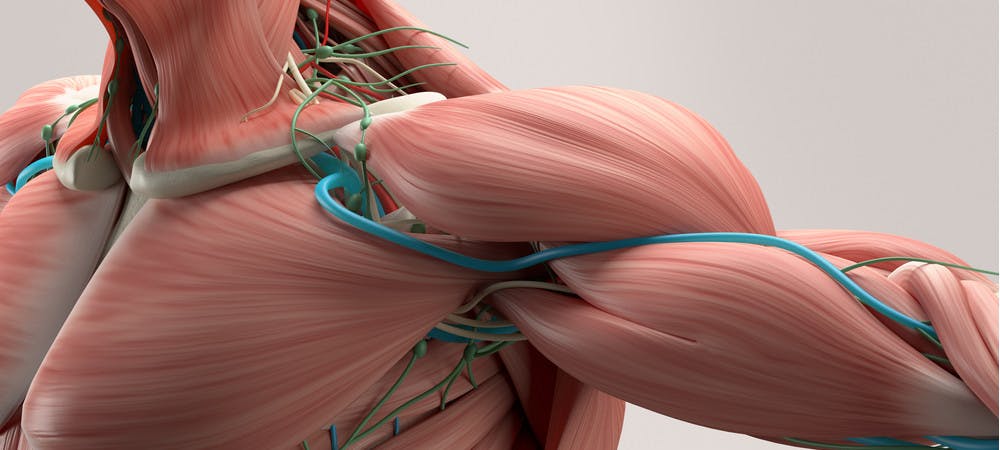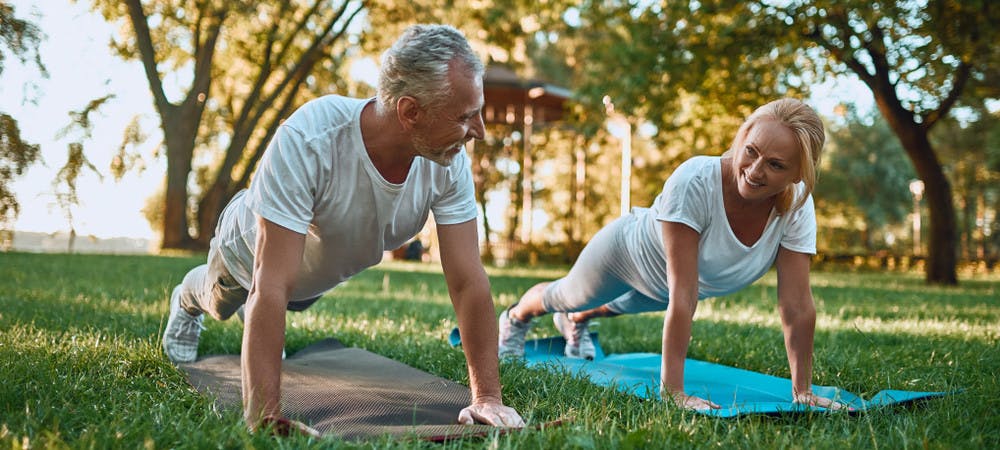Healthy muscles matter
Dr. Palla research focuses on finding ways to stimulate the stem cells as we age, and in different muscle wasting diseases, trying to find some sort of therapy to improve their function.
I’d like to start by asking you what your area of research and interest is?
Dr. Palla: My area of research is a rare population of muscle stem cells that are in charge of keeping your muscles throughout your lifetime. If you have any type of injury, these are the ones that will repair the tissue damage. Unfortunately, as we age, these cells become scarce and their function is decreased. Therefore, our research focuses on finding ways to stimulate the stem cells as we age, and in different muscle wasting diseases, trying to find some sort of therapy to improve their function.
Regarding your research on embryonic stem cells, which findings or discoveries, are game changers for the future of the longevity sector?
Dr. Palla: The key for this sector is the discovery of the reprogramming of cells. For example, skin fibroblasts being able to go back to a state which is similar to embryonic stem cells such as the induced pluripotent stem cells. We can learn a lot about this process of reversal, which gives us a lot of clues of how to potentially dedifferentiate ourselves to have a bigger supply of stem cells. It is interesting that we would not need to take the cells all the way back to an embryonic stage, but to take a step back to our endogenous state. For example, if there were a way of taking our differentiated muscle cells into a state of muscle stem cells, then this would be very useful in the process of aging, where one of the main processes that occurs is that we lose the stem cell number in many of our tissues. This is one of the concepts of aging that we see. We can identify the key biological complex processes that occur and try to mimic them as a translational output. This is still quite far from anything in the clinic but gives us, as researchers, an idea of how this could happen and how rejuvenation strategies might be developed based on this process of dedifferentiation. We are pretty far from it, but it can give us a lot of knowledge in this aspect.

We can use inflammatory molecules in our favor to promote regeneration, healing and learn how to modulate these processes.
What is the role of the inflammatory molecule in the muscle regeneration process? How will the results of research in this field impact what we know about factors influencing human longevity?
Dr. Palla: In one of our discoveries, we found that the inflammatory molecule is very important for stimulating muscle stem cells. We have this concept that inflammation is something bad, something that you have to get rid of, and take anti-inflammatories for immediately. But, inflammation is just the natural response of our body to certain stimulants. They are inflammatory molecules that are good because they want to resolve what that problem is. It was quite amazing that we found, for example, this inflammatory molecule to have such a huge effect on the regenerative process. This happens for many inflammatory molecules. The problem is the context of timing. If one of these inflammatory molecules is outside of the normal healing process, then it can be detrimental. But we can use these inflammatory molecules in our favor to promote regeneration and healing and learn a lot about inflammation and how to modulate these processes. Rather than just blaming it, we can find out what are the key molecules that are present in inflammation as a response to injury and how we can use those to influence human longevity by applying the positive factors in a timely manner. That said, some are good and some are bad and what we can try to dissect is which are the positive and negative factors from this.
Why is skeletal muscle regeneration important in the aging process and how can it be improved?
Dr. Palla: Our capacity to regenerate skeletal muscle decreases as we age. This is due to a reduction in the number of stem cells and a loss of function in these stem cells. As an older individual, you are more prone to falls and to have certain types of surgery. This, in the context of aging, will greatly decrease your capacity to recover. In the case of, for example, a hip fracture, you have to go through some elective surgery, such as a joint replacement. Or just falling when you are aged requires bed rest and this can result in a cycle where the more time you are in bed, the more muscle loss you have and the frailer you can become. Trying to boost the skeletal muscle regeneration would enhance these recovery times. Skeletal muscle stem cells are important for injury but also in maintaining the homeostasis of our muscles. We could potentially stimulate the cells to add more fibers and more nuclei to the muscle. The strategy of keeping your muscle protein status and then stimulating your stem cells to improve the function of your muscle is one that we are exploring within our work.
What is the impact of stress on our longevity and how should we manage it?
Dr. Palla: Without a doubt a high-stress level in our lives will affect our aging process. It is well-known that stress can accelerate aging. The most important thing is to get the balance right. When we have a high-stress response, we have to counter it by blocking that oxidative stress response, not just by developing healthy eating habits and taking exercise but by finding ways to stimulate our anti-stress response. I wouldn’t say there is one simple solution such as a magic pill.

If you think about centenarians, although there is a huge genetic component, most of these people have had pretty active lifestyles.
Do you think it is important to develop healthy habits at a young age, so they have an impact on our adulthood? Is that critical?
Dr. Palla: Definitely, that is one of the key things to longevity. If you think about centenarians, although there is a huge genetic component, most of these people have had pretty active lifestyles and this is definitely important for the process of delaying aging. Trying to stop aging is like trying to stop a train with no brakes. If you have already gone too far and lost all your stem cells, and muscle mass, it is hard to stop that process once it has started. But if you start at a younger age when you still have mobility – and I would not say that young, but even in your 50s and 60s you can still improve your activity and lifestyle. That is the time when it is most important to have an active role in changing some of the habits you have. I truly believe that a good diet and having an exercise regime, even if it is just walking a little bit every day, will have a tremendous effect on longevity along the road. It is hard to have a person that is 80 plus or 90 plus that has never had an active lifestyle, to tell them to start getting more mobile because it is almost impossible in that context. The most important thing is to start early. And then that way you can take those habits with you as you age, and you will probably see that this will significantly improve your expected outcome as you age. That being said, there are other factors that can be involved such as cardiovascular risk and so forth. But as a whole, it can improve your longevity to make these changes earlier.
In terms of your own longevity secret, what do you do for your longevity?
Dr. Palla: Thankfully, I’m still far from that. But now, I spend most of my time just trying to find the solution. But for sure I believe in having an active lifestyle and, finding work life balance, which can improve your stress levels later on and not have such an accelerated aging process. When you are young, you do not think about these things, but if you truly want to take care of yourself, the earlier you start to be active, the earlier you will start to see benefits. That is the secret.
Could you please recommend any longevity books?
Dr. Palla: There are quite a few. If you are interested in the science of longevity, and some of the things that are being done, and what the targets are, there is one that is called “The Borrowed Time” by Sue Armstrong. This is a new book and gives a nice summary of all the implications of biological aging and where to target them. There is a lot about diets that you can follow. I have also recently read “The Enzyme Factor” by Dr. Hiromi Shinya who explains the importance of a healthy gut microbiome and a healthy diet. If you are interested in the possibilities of telomere extension, there is “Dying young at 140” by Maria Blasco and Mónica G. Salomone

